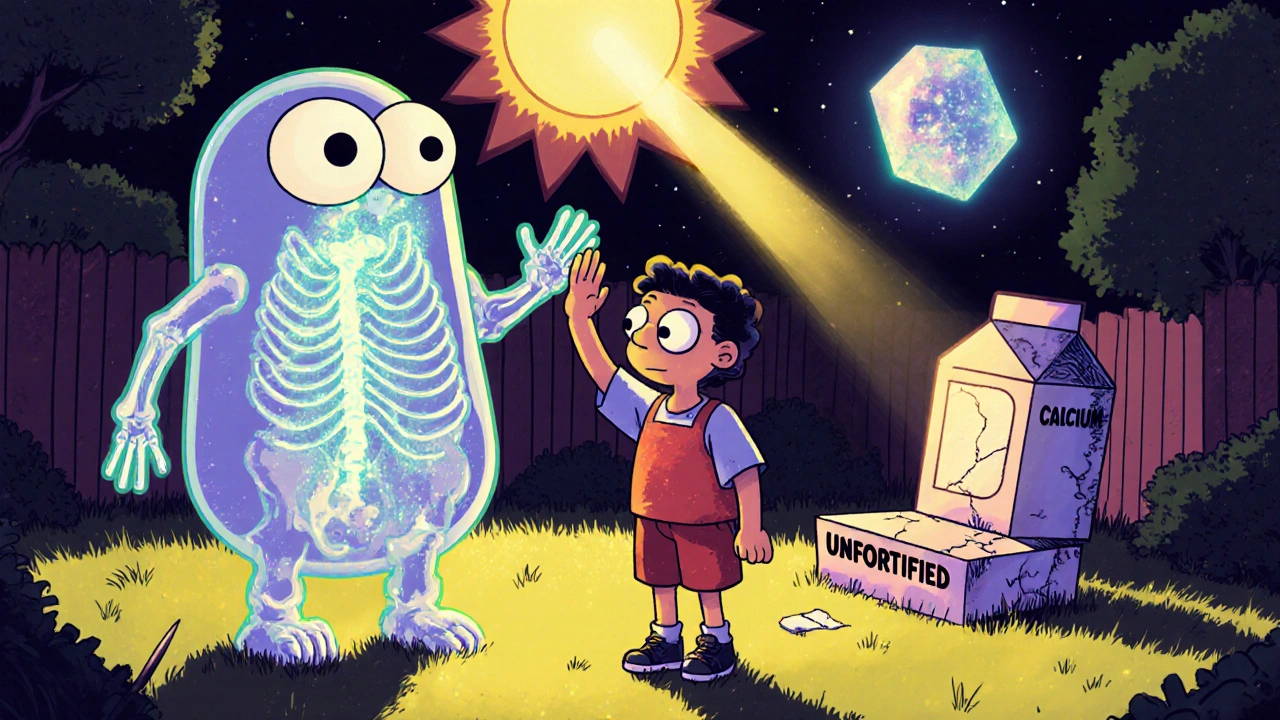Rickets Prevention: How to Keep Bones Strong and Avoid Deficiency in Kids
When kids don’t get enough vitamin D, a nutrient essential for absorbing calcium and building strong bones, their skeletons can soften and bend — that’s rickets, a preventable bone disease most common in young children. It’s not just about sunlight or supplements. Rickets prevention starts with daily habits: what your child eats, how much time they spend outside, and whether they’re getting the right nutrients at the right time. This isn’t a problem of the past — it’s still happening today, especially in areas with long winters, limited sun exposure, or diets low in dairy and fortified foods.
Calcium, the main mineral in bones works hand-in-hand with vitamin D. Without enough calcium, even perfect vitamin D levels won’t stop rickets. Milk, yogurt, cheese, fortified cereals, and leafy greens are key. But here’s the catch: many kids don’t drink enough milk anymore. If your child is on plant-based milks, check the label — not all are fortified. And if they’re lactose intolerant or allergic, you need alternatives like calcium-fortified orange juice or supplements. Then there’s sunlight, the body’s natural source of vitamin D. Ten to fifteen minutes of midday sun on arms and legs, a few times a week, can be enough for fair-skinned kids. But sunscreen blocks vitamin D production, and in northern climates, the sun just isn’t strong enough for months at a time. That’s why doctors often recommend daily vitamin D drops for babies and young children — even if they’re outside regularly.
Some kids are at higher risk: premature babies, those with dark skin (which makes vitamin D from sun harder to produce), kids who are exclusively breastfed without supplements, or those with digestive issues that affect nutrient absorption. Pediatricians usually check vitamin D levels around age one, but you don’t have to wait. If your child is slow to walk, has bowed legs, or complains of bone pain, talk to your doctor. Prevention is easy — it’s just consistent. Give vitamin D daily, serve calcium-rich foods, and let them play outside when the sun’s up. No fancy supplements. No expensive diets. Just the basics, done right. Below, you’ll find real-world advice from parents and doctors on keeping kids’ bones healthy, avoiding common mistakes, and knowing when to step in before it becomes a problem.
How Calcium and Phosphorus Prevent Rickets in Children
Calcium and phosphorus, with vitamin D, are essential for preventing rickets in children. Learn how these minerals work together, which foods provide them, and simple steps to protect your child's bone health.
